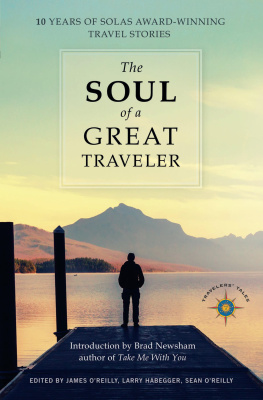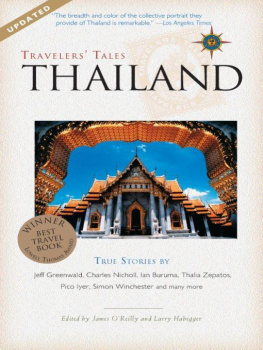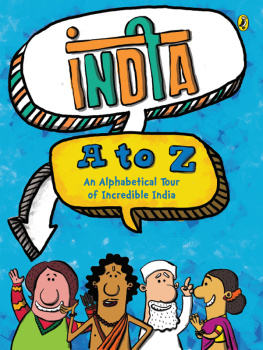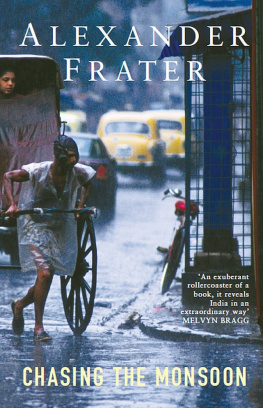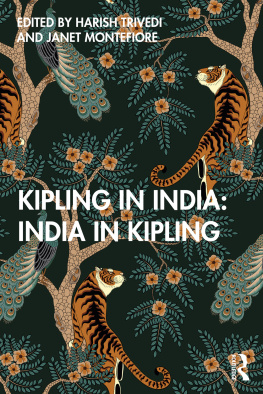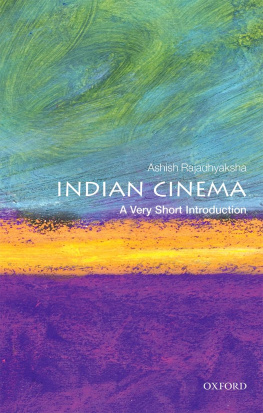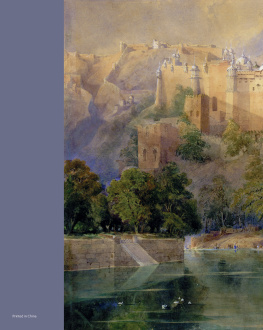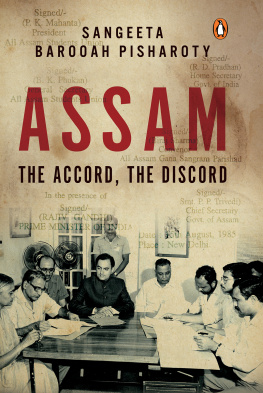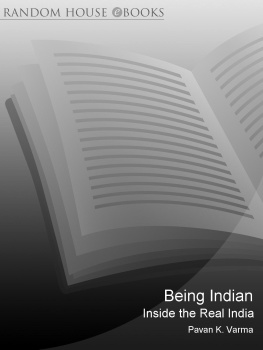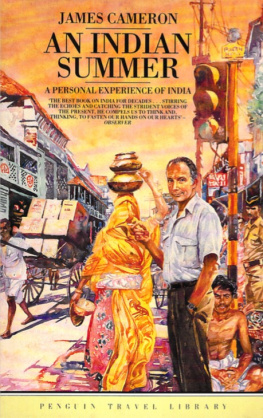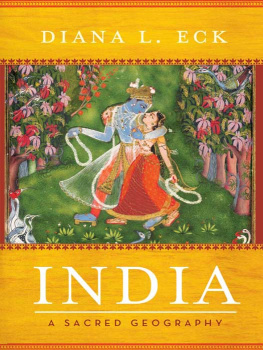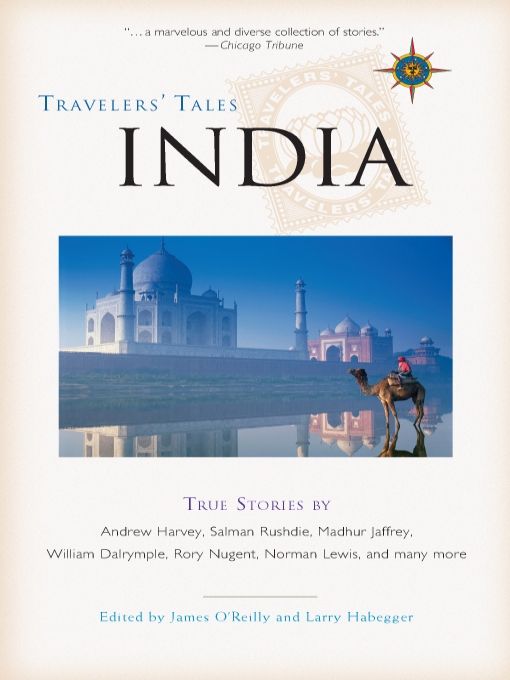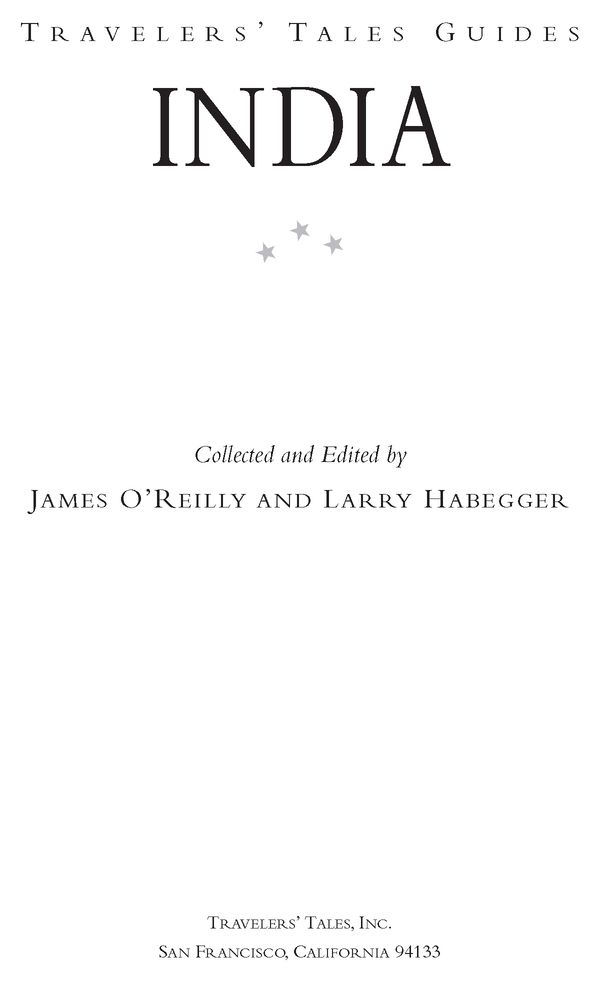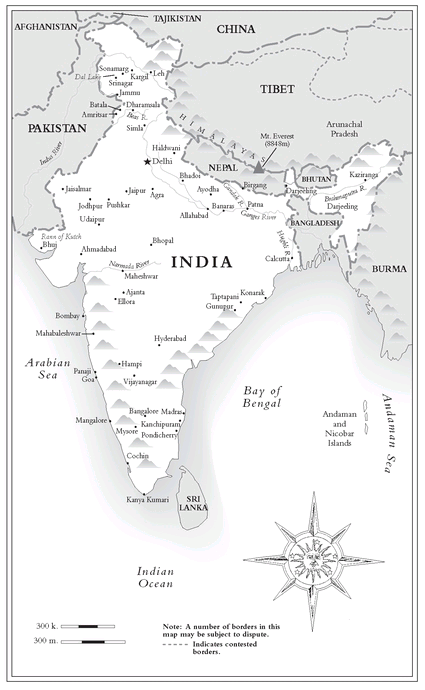Table of Contents
CRITICAL ACCLAIM FOR TRAVELERS TALES
The Travelers Tales series is altogether remarkable.
Jan Morris, author of Journeys, Locations, and Hong Kong
For the thoughtful traveler, these books are an invaluable resource. Theres nothing like them on the market.
Pico Iyer, author of Video Night in Kathmandu
This is the stuff memories can be duplicated from.
Karen Krebsbach, Foreign Service Journal
I cant think of a better way to get comfortable with a destination than by delving into Travelers Talesbefore reading a guidebook, before seeing a travel agent. The series helps visitors refine their interests and readies them to communicate with the peoples they come in contact with.
Paul Glassman, Society of American Travel Writers
Travelers Tales is a valuable addition to any pre-departure reading list.
Tony Wheeler, publisher, Lonely Planet Publications
Travelers Tales delivers something most guidebooks only promise: a real sense of what a country is all about.
Steve Silk, Hartford Courant
These anthologies seem destined to be a successTravelers Tales promises to be a useful and enlightening addition to the travel bookshelves. By collecting and organizing such a wide range of literature, OReilly and Habegger are providing a real service for those who enjoy reading first-person accounts of a destination before seeing it for themselves.
Bill Newlin, publisher, Moon Publications
The Travelers Tales series should become required reading for anyone visiting a foreign country who wants to truly step off the tourist track and experience another culture, another place, first hand.
Nancy Paradis, St. Petersburg Times
Like having been there, done it, seen it. If theres one thing traditional guidebooks lack, its the really juicy travel information, the personal stories about back alleys and brief encounters. The Travelers Tales series fills this gap with an approach thats all anecdotes, no directions.
Jim Gullo, Diversion
OTHER TITLES IN THE SERIES
Thailand
Mexico
Italy
A Womans World
France
Spain
San Francisco
Hong Kong
Food
Brazil
Paris
Gutsy Women
Nepal
The Road Within
Gutsy Mamas
A Dogs World
Love & Romance
The Fearless Diner
A Mothers World
Theres No Toilet Paper on the Road Less Traveled
Women in the Wild
Italy
Japan
America
Safety and Security for Women Who Travel
A million lotuses swaying on one stem,World after coloured and ecstatic worldClimbs towards some far unseen epiphany.
SRI AUROBINDO GHOSE
Preface
TRAVELERS TALES
We are all outsiders when we travel. Whether we go abroad or roam about our own city or country, we often enter territory so unfamiliar that our frames of reference become inadequate. We need advice not just to avoid offense and danger, but to make our experiences richer, deeper, and more fun.
Traditionally, travel guides have answered the basic questions: what, when, where, how, and how much. A good guidebook is indispensable for all the practical matters that demand attention. More recently, many guidebooks have added bits of experiential insight to their standard fare, but something important is still missing: guidebooks dont really prepare you, the individual with feelings and fears, hopes and dreams, goals.
This kind of preparation is best achieved through travelers tales, for we get our inner landmarks more from anecdote than information. Nothing can replace listening to the experience of others, to the war stories that come out after a few drinks, to the memories that linger and beguile. For millennia its been this way: at watering holes and wayside inns, the experienced traveler tells those nearby what lies ahead on the ever-mysterious road. Stories stoke the imagination, inspire, frighten, and teach. In stories we see more clearly the urges that bring us to wander, whether its hunger for change, adventure, self-knowledge, love, curiosity, sorrow, or even something as prosaic as a job assignment or two weeks off.
But travelers accounts, while profuse, can be hard to track down. Many are simply doomed in a throwaway publishing world. And few of us have the time anyway to read more than one or two books, or the odd pearl found by chance in the Sunday travel section. Wanderers for years, weve often faced this issue. Weve always told ourselves when we got home that we would prepare better for the next tripread more, study more, talk to more peoplebut life always seems to interfere and weve rarely managed to do so to our satisfaction. That is one reason for this series. We needed a kind of experiential primer that guidebooks dont offer.
Another path that led us to Travelers Tales has been seeing the enormous changes in travel and communications over the last two decades. It is no longer unusual to have ridden a pony across Mongolia, to have celebrated an auspicious birthday on Mt. Kilimanjaro, or honeymooned on the Loire. The one-world monoculture has risen with daunting swiftness, weaving a new cross-cultural rug: no longer is it surprising to encounter former headhunters watching All-Star Wrestling on their satellite feed, no longer is it shocking to find the last guy at the end of the earth wearing a Harvard t-shirt and asking if you know Michael Jordan. The global village exists in a rudimentary fashion, but it is real.
In 1980, Paul Fussell wrote in Abroad: British Literary Traveling Between the Wars a cranky but wonderful epitaph for travel as it was once known, in which he concluded that we are all tourists now, and there is no escape. It has been projected by some analysts that by the year 2000, tourism will be the worlds largest industry; others say it already is. In either case, this is a horrifying prospecthordes of us hunting for places that have not been trod on by the rest of us!
Fussells words have the painful ring of truth, but this is still our world, and it is worth seeing and will be worth seeing next year, or in 50 years, simply because it will always be worth meeting others who continue to see life in different terms than we do despite the best efforts of telecommunication and advertising talents. No amount of creeping homogeneity can quell the endless variation of humanity, and travel in the end is about people, not places. Places only provide different venues, as it were, for life, in which we are all pilgrims who need to talk to each other.
There are also many places around the world where intercultural friction and outright xenophobia are increasing. And the very fact that travel endangers cultures and pristine places more quickly than it used to calls for extraordinary care on the part of todays traveler, a keener sense of personal responsibility. The world is not our private zoo or theme park; we need to be better prepared before we go, so that we might become honored guests and not vilified intruders.
In


